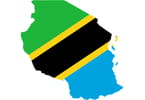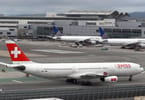(eTN) Following Bangkok’s violence, the Thai travel industry has been prompt to look at ways to revive tourism, involving members of the government at the highest level. Thailand tourism, which accounts for 7 to 12 percent of the GDP (Gross Domestic Product) – numbers vary if indirect employment is included – saw total arrivals plunging in April and May by up to 40 percent, according to sources at the Ministry of Sports and Tourism.
The Abhisit Vejajjiva government fully acknowledges the issue and has promised to come up with a rescue package including soft loans to companies involved in tourism activities, as well as a special budget for the Tourism Authority of Thailand (TAT). Some US$70 million should be provided for companies and affected staff such as guides or bus drivers. To cut operating costs for the industry, the ministry of tourism wants also to ask for waivers of the household tax, land tax, excise tax for golf, and property tax for hotels until 2011.
However, TAT will have to redefine ways to boost arrivals. Until now, Thailand has always been lucky to see tourism bouncing back quicker than expected due to its attractive image, attractive prices, and a genuinely service-minded gentle Thai population. This time however, Thailand’s image has been battered by violence and also the government’s inability to provide a rapid response to end previous crises.
The slow reaction to Bangkok’s airports occupation in December 2008 and to end the seizure of an entire district in Bangkok’s commercial heart in April and May of this year has shaken the confidence of travelers. “Consumers are spoilt with choices. Why would they chose a destination where they feel that an eventual risk of being affected by political turbulence subsists?” asked a travel veteran in Bangkok.
TAT will look at more subtle ways than organizing mega familiarization trips for travel agents and media and offering discounts at hotels. Under the overall goal of rebuilding confidence in the Thai tourism industry, the tourism agency plans to make better use of online channels and social media. Those could attract travelers feeling less affected by political turmoil and able to move rapidly to other places. TAT will also look at working in tandem with the private sector to launch special packages and promotions, especially in conjunction with credit card companies. And finally, the tourism authority wants to continue focusing on short-haul markets such as China, Hong Kong, Japan, South Korea, and Taiwan, despite the fact that they were probably the most scared by the April and May unrest.
For the coming peak season, Thailand could capitalize first on the Thailand Travel Mart, now being hosted between September 8 and 10 after being postponed from its original June dates. TAT could then come up with special offers for its long-haul markets from Europe. TAT is also looking at boosting arrivals from emerging markets showing considerable promise such as Indonesia, Iran, Turkey, and Israel.
The tourism industry should also seize the opportunity to look at unknown destinations and get the support of the government to attract new flights offering an alternative to Bangkok. The Royal Thai government should maybe look at ways to offer subsidies for airlines opening direct international routes to provincial airports. A good example about the influence of direct international flights is provided by Phuket: as Bangkok Suvarnabhumi airport saw passengers number falling by 20 percent, the southern resort destination experienced by contrary a rise in international air arrivals by over 40 percent since the beginning of the year and even by 61 percent in May. TAT remains confident that it could again reach 14 million international arrivals, as most countries have now relaxed travel warnings for Thailand.
WHAT TO TAKE AWAY FROM THIS ARTICLE:
- The Abhisit Vejajjiva government fully acknowledges the issue and has promised to come up with a rescue package including soft loans to companies involved in tourism activities, as well as a special budget for the Tourism Authority of Thailand (TAT).
- The slow reaction to Bangkok's airports occupation in December 2008 and to end the seizure of an entire district in Bangkok’s commercial heart in April and May of this year has shaken the confidence of travelers.
- as Bangkok Suvarnabhumi airport saw passengers number falling by 20 percent, the southern resort destination experienced by contrary a rise in international air arrivals by over 40 percent since the beginning of the year and even by 61 percent in May.






















